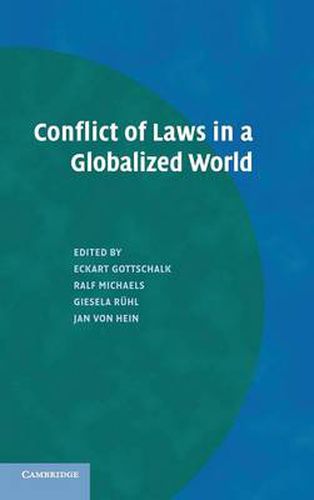Readings Newsletter
Become a Readings Member to make your shopping experience even easier.
Sign in or sign up for free!
You’re not far away from qualifying for FREE standard shipping within Australia
You’ve qualified for FREE standard shipping within Australia
The cart is loading…






This tribute to Professor Arthur von Mehren from the Harvard Law School is a contribution to the evolving transatlantic dialogue on the conflict of laws. It contains ten contributions that discuss the problems conflict of laws is facing in a globalized world. The first five contributions deal with current legal topics in international civil litigation and transatlantic judicial co-operation ranging from the design of judgments conventions to the recently adopted Hague Convention on Choice of Court Agreements, and from problems involving negative declaratory actions in international disputes to recent transatlantic developments relating to service of process and collective proceedings. The remaining five contributions focus on choice of law in international relationships. They cover comparative and economic dimensions of party autonomy, reflect on discussions in the choice of law relating to intellectual property rights, and critically discuss the applicable law in antitrust law litigation, international arbitration, and actions for punitive damages.
$9.00 standard shipping within Australia
FREE standard shipping within Australia for orders over $100.00
Express & International shipping calculated at checkout
This tribute to Professor Arthur von Mehren from the Harvard Law School is a contribution to the evolving transatlantic dialogue on the conflict of laws. It contains ten contributions that discuss the problems conflict of laws is facing in a globalized world. The first five contributions deal with current legal topics in international civil litigation and transatlantic judicial co-operation ranging from the design of judgments conventions to the recently adopted Hague Convention on Choice of Court Agreements, and from problems involving negative declaratory actions in international disputes to recent transatlantic developments relating to service of process and collective proceedings. The remaining five contributions focus on choice of law in international relationships. They cover comparative and economic dimensions of party autonomy, reflect on discussions in the choice of law relating to intellectual property rights, and critically discuss the applicable law in antitrust law litigation, international arbitration, and actions for punitive damages.